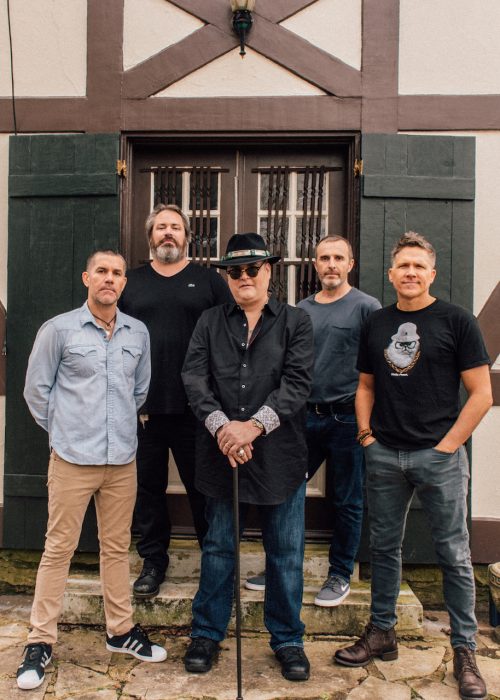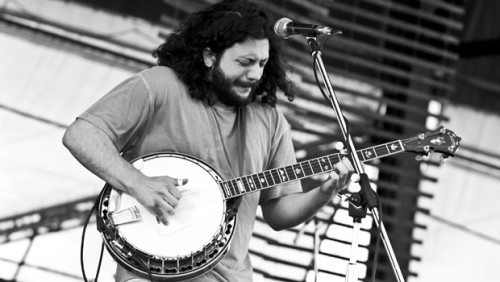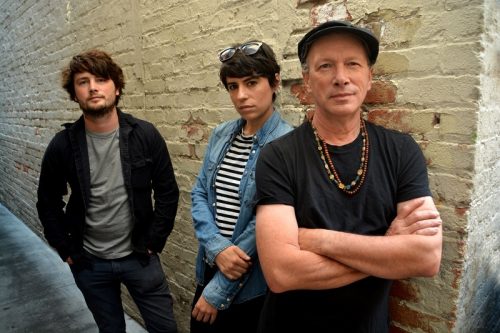By the time Blues Traveler released “Four” in late 1994, the band was primed for a breakthrough. Formed in Princeton, the group had honed its chops in dinky New York City clubs, built a fan base via word of mouth and three previous albums, and its record label, A&M, was all-in.
“I think the most important thing is we made those first three records back in the time when record companies believed in developing bands more than one or two records,” says guitarist Chan Kinchla, who’s been with the band since the beginning. “We were working with A&M for all of those previous records, and A&M kept the same A&R people, the same regional reps, the same radio people, through that whole five-, six-year period. So they were committed to us and were helping us make records. So by the time ‘Four’ came out, it was really a team effort between the record company and us. And A&M, if you look back, they had just a string of hits. They had Soundgarden with the ‘Black Hole Sun’ record, Tracy Chapman, Sting has a huge solo record, Aaron Neville had a huge record, Sheryl Crow had broken right then, so they had all their ducks in a row, and I think that really helped get the message out with the album, and I think we had learned a lot on the previous albums.
“All those things had to come together to make something that strong that was also commercially viable.”
Singles “Run-Around” and “Hook” were mainstream radio hits and MTV and VH1 staples, propelling the band into the mainstream. The album peaked at No. 8, but more importantly, went platinum six times — 6 million copies sold in the US.
Blues Traveler is celebrating the 25th anniversary of “Four” by playing the record in its entirety, including Friday’s show at the Beacon Theatre. The tour will also hit Shippensburg University on Saturday and The Fillmore in Philadelphia on Sunday.
As the band was earning its studio stripes, it was touring incessantly on what was becoming the jam band circuit.
“When we were starting in New York in ’88, ’89, there was actually a really great scene,” Kinchla says. “It was us, Spin Doctors — Chris Barron was actually from Princeton with us — Joan Osborne then also Chris Whitley, who made some great records, all came out of that, and every one of us had maybe radio hits and made careers out of playing music. It was all kind of very Americana-based, you might want to call it. I think a lot of it was a lot of musicianship we were into and some great music schools in the area and also a very vibrant rhythm and blues, funk and punk scene when we arrived down there, especially on the Lower East Side. A lot of great bands like The Worms, Mr. Thing, The Surreal McCoys, these are all bands that all let us open up for them and we kind of learned our chops.
“Kind of at the same time, Phish in Maine, Vermont and the Northeast area, Widespread Panic down in Atlanta area, Dave Matthews, so as we toured up and down the coast, we started playing similar festivals and co-bills with all these bands, and that kind of turned into HORDE [tour]. We all kind of grew up on classic rock. Classic rock radio ruled back then. So I think we got a lot of influence from that and helped create a lot of the jam band kind of ethos that’s gone on from there.”
And out front was John Popper, the charismatic, harmonica-playing lead singer.
“He was always a special breed,” recalls Kinchla. “In high school, when I met him in at a little amp room in our music area of our high school, he was like the star of the band. We had a great music program and big jazz band, ’50s-style, ’40s-style big band, and they used to play all the state competitions, and John was always the ringer. So he always had that special quality. We were all, me, Bobby [Sheehan] and Brendan [Hill] and John, we were just kind of a Led Zeppelin/Grateful Dead high school band, but having John was a great calling card and definitely opened a lot of doors for us.”
While “Four” is the focus of the tour, Blue Traveler has been consistently releasing new music, with three albums since 2012. The latest is last year’s “Hurry Up & Hang Around.”
“I think that keeps us creatively engaged with what we do,” he says. “I think we really like to play live, and adding a couple new songs to a set really wakes up the set and keeps things fresh, because you appreciate the older stuff and have to sell the newer stuff. It occupies a lot of position for us to keep being creative. And it’s also really bonding for a band, it keeps the band kind of, I think, connected, and that carries on with the playing and the touring. For us, it’s super fun, so we’ll make as many of them as we can pull off because we really love doing it.”




Leave a Reply